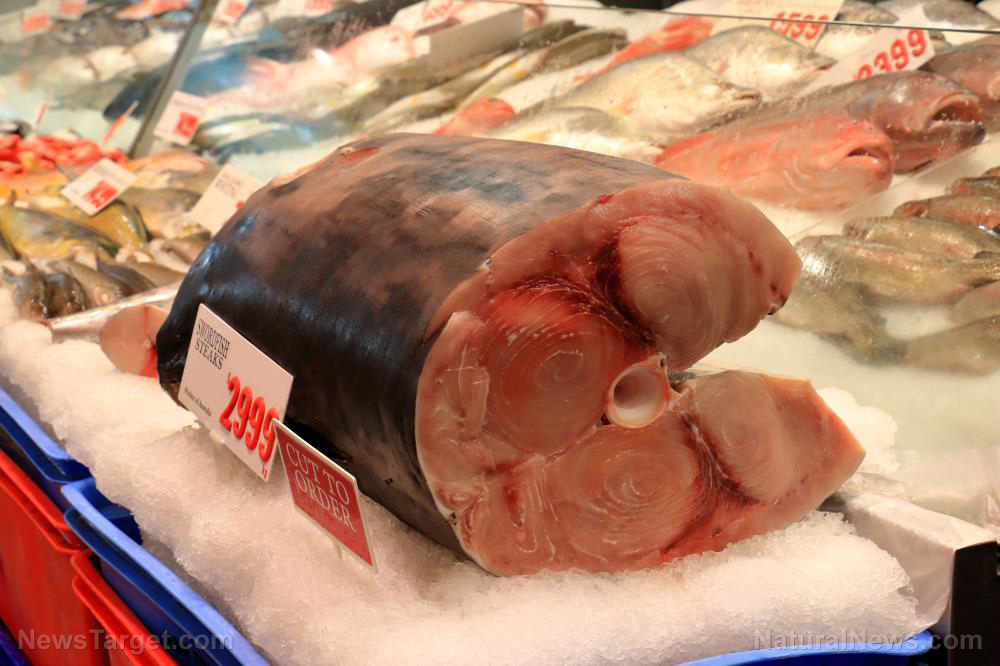Eating polluted seafood can weaken your immune system, study concludes
05/28/2019 / By Zoey Sky

Eating fish rich in omega-3 fatty acids is good for your brain and heart health. However, an alarming study warns that consuming fish contaminated with toxins can harm your immune system.
The study, published in the journal Science Advances, was conducted by researchers from the Scripps Institution of Oceanography at the University of California, San Diego.
Polluted seafood and P-glycoprotein
The toxins that contaminate fish in polluted waters also make their way to the food sold in markets. According to recent studies, eating polluted seafood can significantly damage the immune system.
Researchers warn that dangerous pollutants can get lodged into the muscle tissue of certain types of fish. These pollutants can interfere with the body’s ability to eliminate toxins. (Related: Watch out – These 5 everyday products may be contaminated with plastics.)
The most harmful pollutants found in fish are persistent organic pollutants (POPs), a class of toxic chemicals that reduce P-glycoprotein’s (P-gp) ability to expel toxins out of cells.
P-gp is like a gatekeeper: It binds to foreign chemicals and forces them out of the body. Because of its critical function, the body needs adequate amounts of P-gp to make it insusceptible to toxins.
For their study, the researchers tried to determine how effective P-gp is at expelling industrial and agricultural POPs from contaminated fish. They analyzed 10 different POPs and found that one POP called PBDE-100, a chemical used as a flame retardant in upholstery foam and plastics, attaches to P-gp; but instead of being expelled, it works as an inhibitor and prevents P-gp from performing its defense function.
This finding suggests that people who eat seafood contaminated by PBDE-1oo are at risk of having weaker immune systems.
Studies like this highlight the dangerous side effects of chemicals and pollutants in the environment. To address this concern, businesses, governments, and industries should make an effort to minimize the impact of these pollutants to the environment, the health of consumers, and the food chain.
To help address pollution and protect yourself and your family, buy seafood from environmentally-friendly companies and local farmers’ markets.
Healthy eating: Safe seafood options
Adding seafood to your diet can help keep your body healthy and strong. Below is a list of nutritious seafood that are safe to eat.
- Catfish – Catfish is full of omega-3 fatty acids. It also contains vitamin B12 and vitamin D. To be on the safe side, don’t purchase imported catfish, like basa, Pangasius, and swai fish, which are also labeled “catfish.”
- Pacific sardines – Canned sardines are a healthy choice. All types of sardines are also low in mercury. Although Pacific sardines are small, they are full of omega-3 fatty acids, calcium, iron, magnesium, phosphorus, potassium, and zinc.
- Wild Alaskan salmon – Wild Alaskan salmon is nutritious and sustainable. It has less calories and saturated fat compared with farmed salmon. In addition, you can eat wild Alaskan salmon without worrying about pollutants like polychlorinated biphenyls (PCBs), which are present in large quantities in farmed fish. PCBs are also carcinogenic and have toxic effects on the immune, nervous, and reproductive systems of animals.
To ensure that the seafood you consume are free of toxins, make it a point to know their source before buying. The most toxic fish are found in the Gulf of Mexico where oil spills have occurred many times, so avoid fish caught from or near that area. Also, do not buy wild-caught yellowfin tuna as they have been identified as particularly toxic.
Sources include:
Tagged Under: #nutrition, agricultural polluntants, Alaskan salmon, catfish, chemicals, contaminated fish, contamination, farmed fish, fish, foreign chemicals, immune defense, immune system, industrial pollutants, markets, minerals, omega-3 fatty acids, P-glycoprotein, P-gp, PBDE-100, persistent organic pollutants, pollutants, polluted seafood, POPs, research, Sardines, seafood, toxins, vitamins, wild fish, yellowfin tuna
RECENT NEWS & ARTICLES
COPYRIGHT © 2017 FOOD SCIENCE NEWS



















